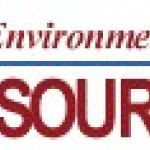- Branche: Government
- Number of terms: 3992
- Number of blossaries: 2
- Company Profile:
Air pollutants that occur within buildings or other enclosed spaces, as opposed to those occurring in outdoor, or ambient air. Some examples of indoor air pollutants are nitrogen oxides, smoke, asbestos, formaldehyde, and carbon monoxide. For more information, please go to our indoor air quality website.
Industry:Pollution control
Advisory groups that provide forums for communication, cooperation, and coordination in the development and implementation of air quality control measures. They may be comprised of representatives from the ARB, citizen groups, environmental groups, industry, local air districts, and the U. S. EPA.
Industry:Pollution control
Actions taken against a state or local government by the federal government for failure to plan or to implement a State Implementation Plan (SIP). Examples include withholding of highway funds and a ban on construction of new sources of potential pollution.
Industry:Pollution control
A workshop held by a public agency for the purpose of informing the public and obtaining its input on the development of a regulatory action or control measure by that agency.
Industry:Pollution control
A visible or measurable discharge of a contaminant from a given point of origin that can be measured according to the Ringelmann scale. (See Ringelmann Chart. )
Industry:Pollution control
A vehicle that meets the ARB's low emission vehicle standards. For more information, please go to our low emission vehicle website.
Industry:Pollution control
A type of internal combustion engine that uses low-volatility petroleum fuel and fuel injectors and initiates combustion using compression ignition (as opposed to spark ignition that is used with gasoline engines).
Industry:Pollution control
A term used in risk assessment. An exposure level at which there are no statistically or biologically significant difference or severity of ant effect between an exposed population and a comparable non-exposed population.
Industry:Pollution control
A rule-making concept whereby approval of a new or modified stationary source of air pollution is conditional on the reduction of emissions from other existing stationary sources of air pollution. These reductions are required in addition to reductions required by best available control technology. For information please go to our New Source Review Emission Reduction Credit Offsets website.
Industry:Pollution control
A rule-making concept whereby approval of a new or modified stationary source of air pollution is conditional on the reduction of emissions from other existing stationary sources of air pollution. These reductions are required in addition to reductions required by best available control technology. For information please go to our New Source Review Emission Reduction Credit Offsets website.
Industry:Pollution control
